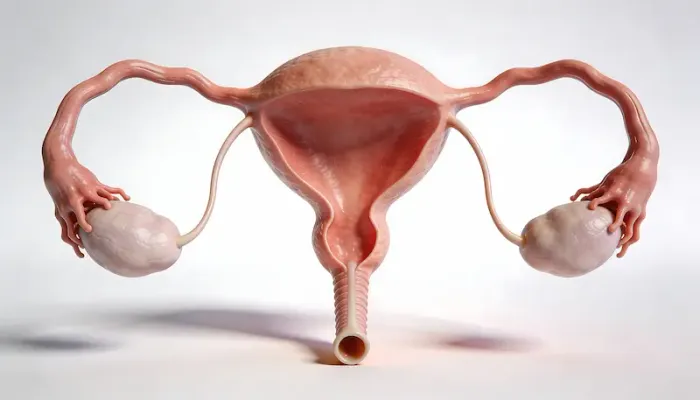Temperature Regulation After Hysterectomy
Experiencing issues with temperature regulation after hysterectomy? Learn why hot flashes, night sweats, or feeling cold can occur due to hormonal shifts and surgical impact. Discover strategies to manage your body temperature and improve comfort.

Written by Dr. Mohammed Kamran
Reviewed by Dr. Dhankecha Mayank Dineshbhai MBBS
Last updated on 27th Feb, 2026

Introduction
Undergoing a hysterectomy (surgical removal of the uterus) can bring significant changes to a woman's body, including how it regulates temperature. Many women report experiencing hot flashes, night sweats, or sudden chills after the procedure. If you’ve been feeling unusually warm or cold, you’re not alone—this is a common concern.
In this article, we’ll explore why temperature regulation may be affected after a hysterectomy, what you can do to manage it, and when to seek medical advice.
Why Does a Hysterectomy Affect Body Temperature?
The uterus itself does not control body temperature, but the surgery can impact hormone levels—especially if the ovaries are also removed (oophorectomy). The ovaries produce estrogen, a key hormone that helps regulate body temperature. When estrogen levels drop suddenly (as in surgical menopause), the brain’s hypothalamus (which acts like the body’s thermostat) can become confused, leading to:
Hot flashes – Sudden warmth, flushing, and sweating, often in the face, neck, and chest.
Night sweats – Excessive sweating at night, disrupting sleep.
Cold intolerance – Feeling unusually chilly, especially in hands and feet.
Even if the ovaries are left intact, some women still experience temporary hormonal fluctuations due to reduced blood supply to the ovaries after surgery.
How Long Do Temperature Fluctuations Last?
Temperature fluctuations last:
If the ovaries are removed, symptoms may start immediately and last for several years, similar to natural menopause.
If the ovaries are preserved, symptoms may be temporary, lasting a few weeks to months as the body adjusts.
Every woman’s experience is different, but most find that symptoms improve over time.
Tips to Manage Temperature Regulation Issues
Tips to manage temperature regulation issues:
1. Dress in Layers
Wear lightweight, breathable fabrics (like cotton) that can be easily removed if a hot flash strikes.
Keep a small fan or cooling towel handy.
2. Stay Hydrated
Drink plenty of water to help regulate body temperature.
Avoid caffeine and alcohol, as they can trigger hot flashes.
3. Maintain a Cool Sleeping Environment
Use moisture-wicking bedsheets and a cooling pillow.
Keep the bedroom slightly cooler at night.
4. Practice Relaxation Techniques
Stress can worsen hot flashes, so deep breathing, yoga, or meditation may help.
5. Consider Hormone Replacement Therapy (HRT)
If symptoms are severe, HRT (under a doctor’s supervision) can help balance estrogen levels.
6. Eat a Balanced Diet
Include foods rich in phytoestrogens (like soy, flaxseeds, and whole grains) which may help ease symptoms.
Avoid spicy foods, which can trigger hot flashes.
Consult Top Gynaecologists
When to See a Doctor?
While temperature fluctuations are common, consult your doctor if:
Symptoms are severe and disrupt daily life.
You experience dizziness, rapid heartbeat, or extreme fatigue.
You’re considering HRT and need guidance.
If you’re struggling with posthysterectomy symptoms, Apollo24|7 offers expert consultations with gynecologists who can provide personalized advice. You can easily book an appointment online for support.
Final Thoughts
Temperature regulation issues after a hysterectomy can be frustrating, but they are manageable. With the right lifestyle adjustments and medical support, most women find relief over time. Listen to your body, stay patient, and don’t hesitate to seek help if needed.
If you have concerns about your symptoms, Apollo24|7 is here to help—schedule a consultation today to discuss the best approach for your health.
Consult Top Gynaecologists
Consult Top Gynaecologists

Dr. Sravanthi Pandala
Obstetrician and Gynaecologist
9 Years • MBBS, MMS(OBG).,FMAS.,F.ART.,DRM(Germany).,
Nellore
Apollo Speciality Hospitals, Nellore
(100+ Patients)

Dr. Lavanya S
Obstetrician and Gynaecologist
14 Years • MBBS., MD(Obstetrics & Gynaecology)
Nellore
Apollo Speciality Hospitals, Nellore
(150+ Patients)

Dr. Savitha Shetty
Obstetrician and Gynaecologist
24 Years • MBBS, MRCOG, MD (Obs & Gyn) , DGO
Bengaluru
Apollo Hospitals Sheshadripuram, Bengaluru
(200+ Patients)

Dr. Damayanti Pentiyala
Obstetrician and Gynaecologist
27 Years • MBBS, MD
Khammam
Kinnera Hospital, Khammam
(275+ Patients)
Dr. K Anusha
Obstetrician and Gynaecologist
4 Years • MBBS, DGO
Yemmiganur
SRINIVASAA HOSPITAL, Yemmiganur
Consult Top Gynaecologists

Dr. Sravanthi Pandala
Obstetrician and Gynaecologist
9 Years • MBBS, MMS(OBG).,FMAS.,F.ART.,DRM(Germany).,
Nellore
Apollo Speciality Hospitals, Nellore
(100+ Patients)

Dr. Lavanya S
Obstetrician and Gynaecologist
14 Years • MBBS., MD(Obstetrics & Gynaecology)
Nellore
Apollo Speciality Hospitals, Nellore
(150+ Patients)

Dr. Savitha Shetty
Obstetrician and Gynaecologist
24 Years • MBBS, MRCOG, MD (Obs & Gyn) , DGO
Bengaluru
Apollo Hospitals Sheshadripuram, Bengaluru
(200+ Patients)

Dr. Damayanti Pentiyala
Obstetrician and Gynaecologist
27 Years • MBBS, MD
Khammam
Kinnera Hospital, Khammam
(275+ Patients)
Dr. K Anusha
Obstetrician and Gynaecologist
4 Years • MBBS, DGO
Yemmiganur
SRINIVASAA HOSPITAL, Yemmiganur




.webp)